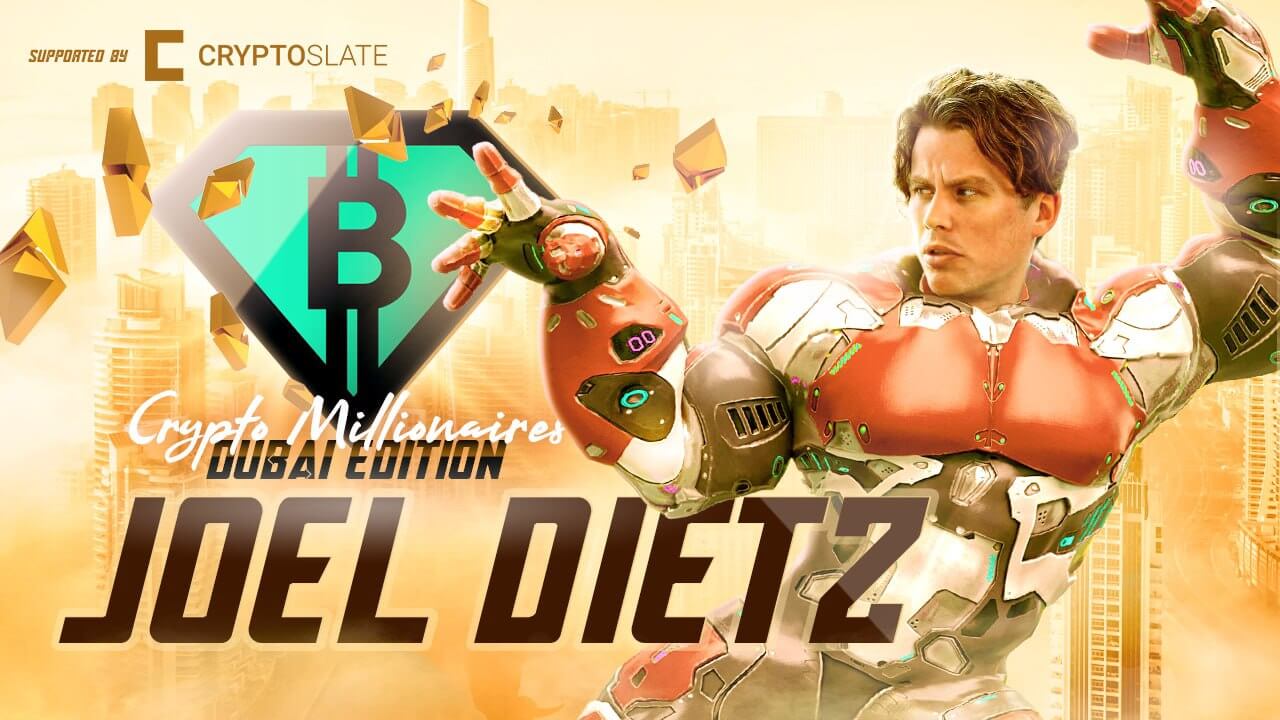
You may have not heard of Joel Dietz, but the man behind several crypto protocols apps used by millions daily. These include Ethereum (as part of the founding team), MetaMask, the first smart contract educational channel, and the first academic work on cryptoeconomics.
Dietz, whose work includes the iconic Swarm Fund, sports research interests ranging from the confluence of blockchain network topologies and swarm intelligence, and how the principles underlying decentralized organizations can be further used to fuel global innovation.
Today, Dietz sat down with Alex Fazel, the host of crypto edutainment channel CryptoNites, talking all things crypto, Ethereum, the upcoming ETH 2.0 update, NFTs, the Burning Man, and much more.
Here’s a snippet of everything they said!
On Burning Man and crypto culture
Dietz kicked off with a segment on his role at the legendary Burning Man Project—an event focused on community, art, self-expression, and self-reliance—and its many parallels to crypto space.
“Burning Man is also kind of evolving its governance structures and interesting ways. I’ve been involved with the platform cooperative movement for a long time looking kind of like stakeholder voting and part of that overlaps with crypto, but it’s also like a broader community in some ways in the cryptocurrency community,” he shared, adding:
“And Burning Man is like starting to look at ways within their kind of future organization around big theme camps and stuff.”
Dietz further stated, “I think there’s a lot of like, overlap conceptually, you know, and some of us back when we first were getting involved in crypto, the reason we wanted to do it was because we thought, you know, we could help governance evolve some of the primitives and thinking about governance was very baked in.”
Into the Ether
On Dietz’s entry into Ethereum, “When I read the Ethereum white paper for the first time I had a nerdgasm you know, and it was just kind of like this wave of like, “oh my goodness, so many possibilities!” And I started, you know, sketching on paper, what you could do and making my own little white papers about different things related to governance and reputational systems and all this kind of stuff.”
“I’ve been concerned for years, you know, and heard, you know, the updates for years. And they were not usually that confidence inspiring, for a variety of reasons. But you know, one of them is I think that Ethereum has not had a very, like, for me, I come from an enterprise software background and open source stuff too,” he further explained.
ETH 2.0 and the NFT multiverse
A segment also focused on Ethereum’s much-awaited move to a proof-of-stake consensus design, away from its current proof-of-work mechanism. The shift has been delayed due to the sheer complexity and scope of the move (which has attracted criticism from several quarters), but Dietz remains upbeat.
“It is kind of similar to what I was saying a lot of the core early innovators and like really talented entrepreneurs and theory and community have trickled away to other projects because they felt constrained within that community. So I mean, I’m still optimistic that Ethereum 2.0 will happen,” he shared.
The man lastly turned to share his thoughts on the growth of the non-fungible token (NFT) space, one that started off as a fringe market in 2019 but has since grown to a $25 billion behemoth.
Dietz shared what excites him the most in that sector, “One thing that I’m excited about the most in that world is like generative art that is basically bound in a blockchain and kind of evolving, you know, along with the blockchain and kind of artificial intelligence.”
Get an edge on the cryptoasset market
Access more crypto insights and context in every article as a paid member of CryptoSlate Edge.
On-chain analysis
Price snapshots
More context



